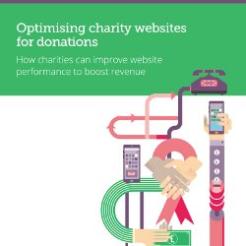One third of leading charity websites require potential donors to complete more than 20 actions before they can make a donation, according to an audit of 50 fundraising charities’ websites by technology charity Eduserv.
The charity said previous research had shown that longer donation paths reduce the number of donors who end up supporting a charity.
In the report Optimising charity websites for donations, Eduserv analysed the performance of the top ten fundraising charities in five categories (aid, children, environment, health and animal).
Websites were scored on website speed, accessibility, how many clicks it took to make a donation, mobile friendliness, mobile friendliness of donation page and the availability of a mobile-specific donation option.
It said that aid charities performed better at taking donations, which it said may reflect their experience of getting donations in quickly for appeals, but charities in other categories "showed there is significant room for improvement".
Overall animal charities performed best, because they have been better at adopting mobile technologies, and health and children’s charities came joint bottom.
The report also found that 25 out 31 sites that are mobile optimised do not offer mobile donation journeys and that only three charities urge people to donate by text for day-to-day donations, rather than fill out a donation form.
According to the report, “this has huge potential to simplify the mobile donation process and boost revenue,” but charities are reluctant to accept anonymous donations.
John Simcock, Charities Director at Eduserv said: “Charities need to urgently think about how they can adopt a more agile approach to managing and improving their websites so that they can address specific challenges like the rise of mobile internet access.”
- The British Red Cross and Eduserv will be presenting a case study at Civil Society Media’s Charity Technology Conference about the moving to a fully responsive website.









